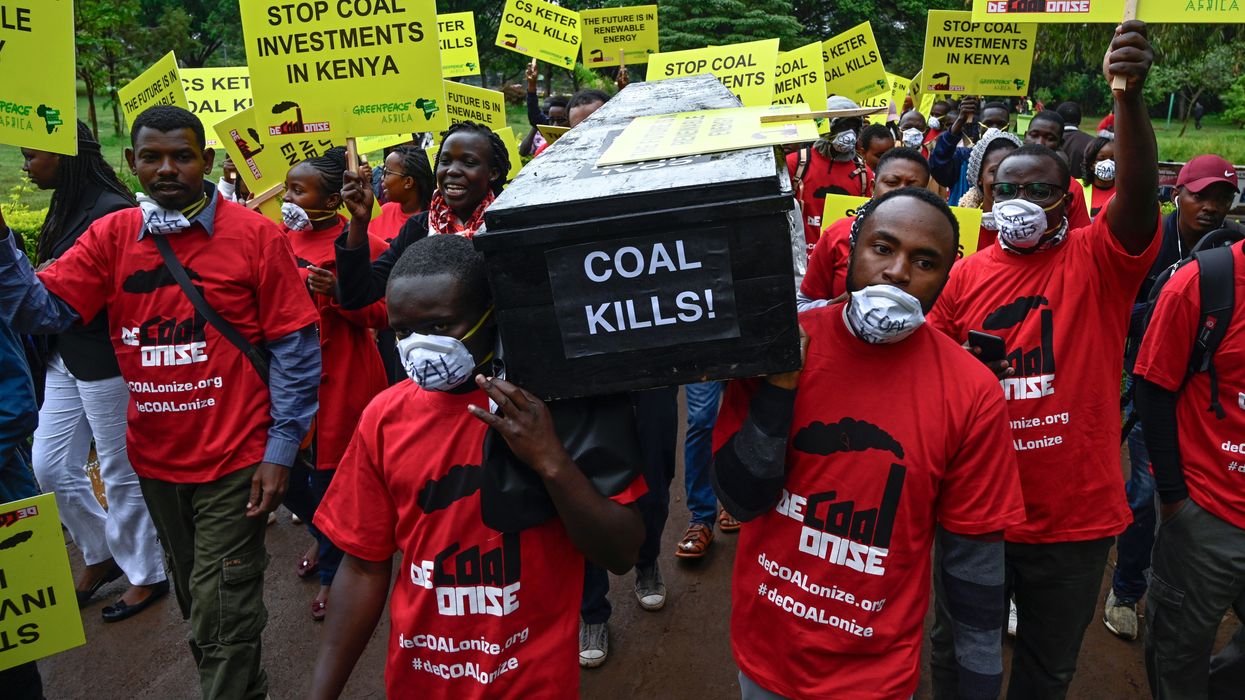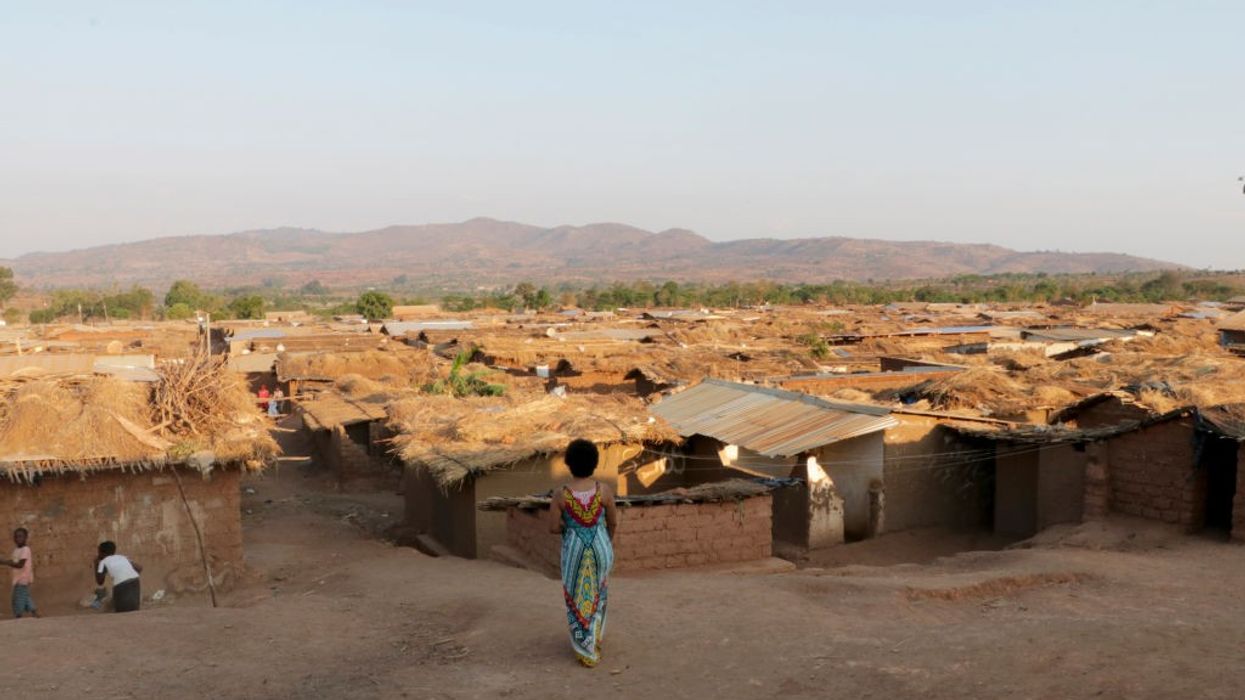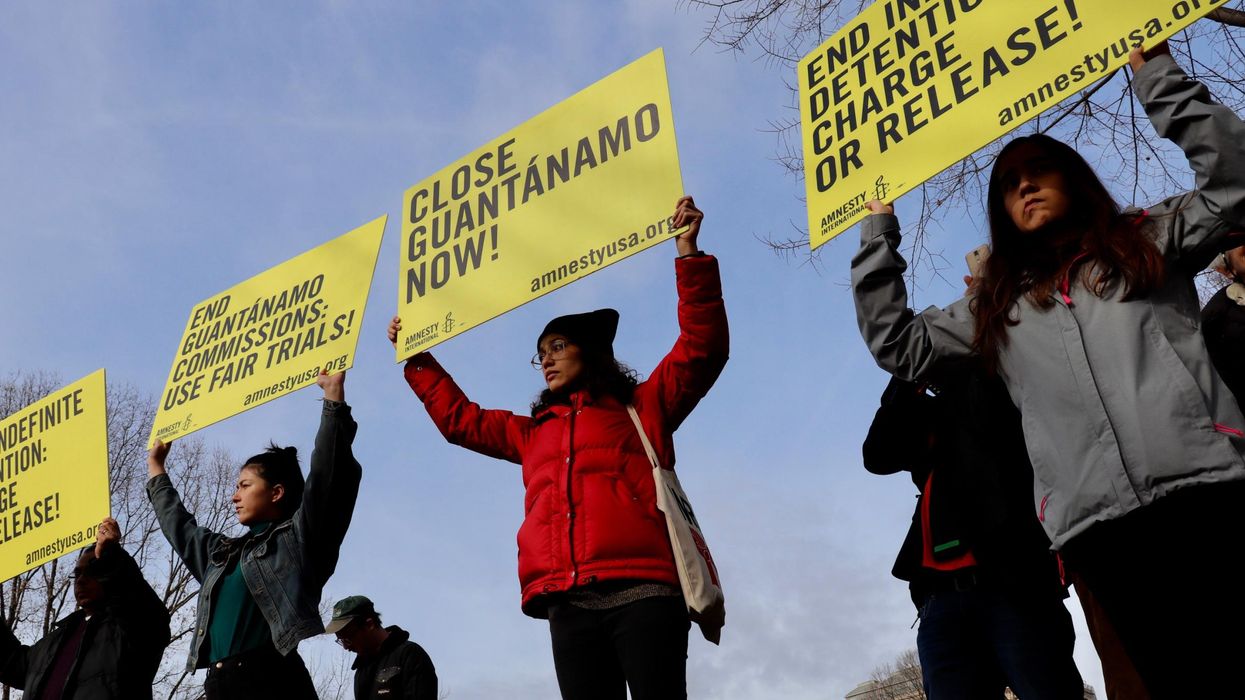How Kenyan Grassroots Activists Defeated a Fossil Fuel Giant
At a time when "Goliath" seems to be winning so many battles, here in Kenya, "David" finally won.
On October 16, a high court in Kenya permanently halted a coal-fired power plant destined for the northern coast of our nation. The power plant, which would’ve been the first in East Africa, threatened to poison the air and waters near Lamu, an island with a rich ecosystem and home to the region’s oldest Swahili settlement. It is also a UNESCO Heritage Site. It took nine years of organizing, protesting, and litigation but we prevailed over Big Coal. To be sure our work is far from over. But at a time when "Goliath" seems to be winning so many battles, here in Kenya, "David" finally won.
We learned that Amu Power, a Chinese-backed corporation, planned to build the power plant in 2016 through a gazette notice in a local paper. As an activist with a background in environmental studies, I understood immediately that this project would kill marine wildlife, spew toxins that would cause health problems, and destroy farmland. It was a climate disaster waiting to happen. And Lamu would be changed forever.
Several local grassroots organizations jumped into action to oppose the project, but we were working in silos. To tackle the fossil fuel industry, a broader strategy was needed. And so, in 2016, the activist organizations Save Lamu, Katiba Institute and Natural Justice, among 16 other organizations, formed a coalition called deCOALonize. Together, we educated the public on the health dangers, the detrimental impacts on biodiversity, and the threats to their livelihoods as farmers. We organized protests, lobbied funders to abandon the project, and visited the site where the proposed power plant was to be built to gather evidence.
On June 26, 2019, the National Environmental Tribunal revoked the Environmental Impact Assessment (EIA) license granted to Amu Power for the construction of the 1,050 megawatt coal plant.
I have seen that the true power is with the people.
The victory was bittersweet, however. A month later, Amu Power appealed the court’s decision. We refused to back down too. Through Save Lamu, deCOALonize filed a cross-appeal that September at the Environment and Land Court in Malindi. We argued that Amu Power had violated regulations that required proper environmental assessments, public participation, and transparency about the health and environmental impacts of the proposed project prior to issuance of the license.
However, in the time it took our case to churn through the legal system, lives were being upended. Amu Power had acquired land from farm owners. Some families received no compensation; others received payments but not as much as promised. Families who left their farms struggled to find places to live, their kids were no longer going to school, and many wallowed in poverty.
The case languished in the court for years. Then, in April 2024, Amu Power filed written submissions in hopes of regaining their license. Following an agonizing wait following several court adjournments, the final judgment was delivered earlier this month. The magistrate upheld the revocation of the license and blocked any further appeals. We collectively sighed in relief.
And yet, we know we have to continue being watchdogs. There are several extraction projects being proposed, especially in Eastern Kenya.
The government claims it wants to reduce our carbon footprint. We were among the nearly 200 countries that signed the Paris Agreement to cut greenhouse gas emissions. And we committed to the United Nations’ Sustainable Development Goals, which includes taking meaningful action to tackle the climate crisis. But we need more than words on paper. We need action. We need a road map. And we need more voices at the table, including women and youth.
Still, we are celebrating this milestone—and hope to inspire hope in others. When you are facing a multibillion-dollar operation and you are just "the people," you do wonder whether those in power will listen. But I have seen that the true power is with the people. Our voices do matter. And now we stand ready to fight again.


